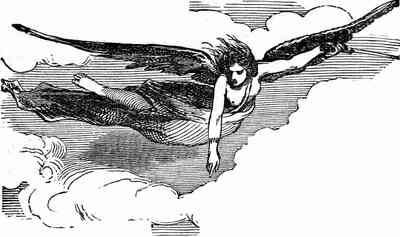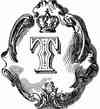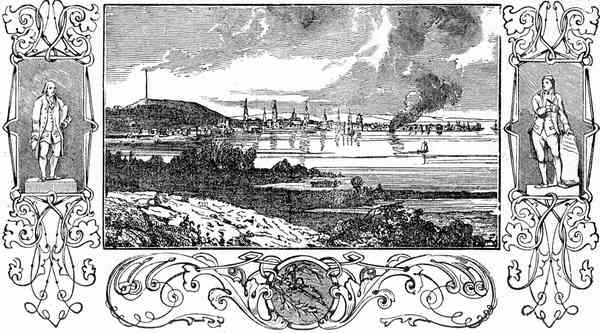Thrilling Incidents In American History
• Preface
Revolutionary War
• Opening Of The Revolution
• The Boston Massacre
• Affair of the Sloop Liberty
• Affair of the Gaspee
• The Tea Riot
• The Boston Port Bill
• The First Continental Congress-Consequent Parliamentary proceedings
• Organization of the Minute-Men
• Patrick Henry-Second Provincial Congress-First Military Enterprise
• Battles of Lexington and Concord
• Battle of Bunker's Hill
• Capture of Ticonderoga
• Second Continental Congress-Washington's Appointment
• Siege of Boston
• Incidents at the Evacuation of Boston
• Burning of Falmouth
• Arnold's Expedition to Quebec
• Siege of Quebec, and Death of Montgomery
• Scenes at Quebec during the Siege
• Expedition against Charleston
• The Declaration of Independence
• The Battle of Long Island
• Washington's Retreat through New Jersey-Capture of General Lee
• Battle of Trenton
• Battle of Princeton
• Capture of General Prescott
• Battle of Brandywine
• Battle of Germantown
• Battle of Red-Bank
• Attack on Fort Mifflin-Retirement of the Army to Valley Forge
• Battle of Bennington
• Murder of Miss M'Crea
• Battle of Stillwater
• Battle of Bemis' Heights, and Retreat of Burgoyne
• Capture of Forts Clinton and Montgomery
• Surrender of Burgoyne
• The Treaty with France
• Attack on Savannah, and Death of Pulaski
• Storming of Stony Point
• General Sullivan's Campaign against the Mohawks
• Tarleton's Quarters
• Battle of Camden, and Death of De Kalb
• Arnold's Treason
• The Loss of the Randolph
• The British Prison-Ships
• Capture of the Serapis
• Putnam's Feat at Horseneck
• Battle of Eutaw Springs
• Wayne's Charge at Green Spring
• Capture of the General Monk
• The Mutinies
• Battle of the Cowpens
• Capture of New London
• Massacre of Wyoming
• Surrender of Cornwallis
War With France
• Capture of L'Insurgente
• The Constellation and Vengeance
War With Tripoli
• Burning of the Philadelphia
• Bombardment of Tripoli
• Loss of the Intrepid
• Expedition of General Eaton
Second War With England
• Battle of Tippecanoe
• Capture of the Guerriere
• Tragical Affair of an Indian Chief
• Battle and Massacre at the River Raisin
• Captain Holmes's Expedition
• Capture of the Caledonia and Detroit
• The Wasp and Frolic
• Gallant Conduct of Lieutenant Allen at the Capture of the Macedonian
• Capture and Destruction of the Java
• Siege of Fort Meigs
• Capture of York, and Death of General Pike
• Defence of Sackett's Harbour
• Defence of Fort Stephenson
• Battle of Lake Erie
• Battle of the Thames
• Gallant Action of Commodore Chauncey under the guns of Kingston Citadel
• The Sacking of Hampton
• Capture of the Peacock
• Massacre at Fort Mimms
• Surrender of Weatherford
• Battle of Niagara
• BattIe of New Orleans
War With Mexico
• Battle of Palo Alto
• Battle of Resaca de la Palma
• Capture of Monterey
• Battle in the Streets of Monterey
• Thrilling Scenes in the Battle of Buena Vista
• Bombardment of Vera Cruz
• Battle of Cerro Gordo
• Battles of Contreras and Churubusco
• Storming of Chapultepec


INCIDENTS AT THE EVACUATION OF BOSTON.
 HE circumstances which led to the evacuation of Boston, and a lively description
of that joyous event, are given as follows by Dr. Thacher, one of the surgeons
of Gene- ral Washington's army, in his Military Journal of the
Revolutionary War.
HE circumstances which led to the evacuation of Boston, and a lively description
of that joyous event, are given as follows by Dr. Thacher, one of the surgeons
of Gene- ral Washington's army, in his Military Journal of the
Revolutionary War.
March 4th.-The object in view is now generally understood to be the occupying and fortifying the advantageous heights of Dorchester. A detachment of our troops is ordered to march for this purpose this evening; and our regiment, with several others, has

Boston as seen from Dorchester
received orders to march at four 'clock in the morning, to relieve them. We are favoured with a full bright moon, and the night is remarkably mild and pleasant; the preparations are immense; more than three hundred loaded carts are in motion. By the great exertions of General Mifflin, our quartermaster- general, the requisite number of teams has been procured. The covering party of eight hundred men advance in front. Then follow the carts with the intrenching tools; after which, the working party of twelve hundred, commanded by General Thomas, of Kingston. Next in the martial procession are a train of carts, loaded with fascines and hay, screwed into large bundles of seven or eight hundred weight. The whole procession moves on in solemn silence, and with perfect order and regularity; while the continued roar of cannon serves to engage the attention and divert the enemy from the main object.
5th.-At about four o'clock our regiment followed to the heights of Dorchester as a: relief party. On passing Dorchester Neck I observed a vast number of large bundles of screwed hay, arranged in a line next the enemy, to protect our troops from a raking fire, to which we should have been greatly exposed, while passing and repassing. The carts were still in motion wIth materials; some of them have made three or four trips. On the heights we found two forts in consderable forwardness, and sufficient for a defence against small arms and grape-shot. The amount of labour perforined during the night, considering the earth is frozen eighteen inches deep, is almost incredible. The enemy having discovered our works in the morning, commenced a tremendous cannonade from the forts in Boston, and from their shipping in the harbour. Cannon-shot are continually rolling and rebounding over the hill; and it is astonishing to observe how little our soldiers are terrified by them. During the forenoon we were in momentary expectation of witnessing an awful scene; nothing less than the carnage of Breed's hill battle was expected. The royal troops are perceived to be in motion, as if embarking to pass the harbour, and land on Dorchester shore, to attack our works. The hills and elevations in this vicinity are covered with spectators to witness deeds of horror in the expected conflict. His excellency General Washington is present, animating and encouraging the soldiers, and they in return manifest their joy, and express a warm desire for the approach of the enemy; each man knows his place, and is resolute to execute his duty. Our breastworks are strengthened, and among the means of defence are a great number of barrels, filled with stones and sand, arranged in front of our works; which are to be put in motion and made to roll down the hill, to break the ranks and legs of the assailants as they advance. These are the preparations for blood and slaughter! Gracious God! if it be determined in thy providence that thousands of our fellow-creatures shall this day be slain, let thy wrath be appeased, and in mercy grant; that victory be on the side of our suffering, bleeding country.-The anxious day has closed; and the enemy has failed to molest us. From appearanccs, however, there are strong reasons to suppose that they have only postponed their meditated work till another day. It is presumed that the martial fire, which has been enkindled in the breasts of our soldiery, will not be extinguished during the night; and that they will not rest quietly under their disappointment. Early in the morning of the 6th, our regiment was relieved from its tour of duty, and I bade adieu to Dorchester Heights, without being called to dress a single wound. Not more than two or three men were killed or wounded during the twenty-four hours. Some of the British troops were seen to embark, and pass down towards the Castle last evening, to be in readiness, as was supposed, in conjunction with others to attack our works this morning; but a most violent storm came on in the night, and still continuing, obliges General Howe to abandon his enterprise, and thus has a kind Providence seen fit to frustrate a design, which must have been attended with immense slaughter and bloodshed. General Howe must now be sensible of his exposed situation, and be convinced of the immediate necessity of evacuating the town of Boston, if he would prevent the sacrifice of his fleet and army.
7th.-There are strong indications in Boston that the king's troops are preparing to evacuate the town; and that no attempt will be made to dispossess our people of the works, which we have constructed on Dorchester Heights.
8th.-A flag of truce has come out of Boston with a message from the selectmen, acquainting General ashmgton that General Howe has come to the determination to evacuate the town, and that he would leave it standing, provided his army should be permitted to retire without being molested. At the same time intimating, as is reported, that in case he should be attacked by our army, the town should be set on fire in different places, in order to secure his retreat.
We are unacquainted with the determination of his excellency respecting this proposition; but it is well known that he has been in favour of making an attack on the town; and that the necessary preparations were made, and the pIan arranged, to be put in execution, in the event of the enemy's meditated attack on our works at Dorchester Heights. Four thousand , troops, the first division commanded by General Sullivan, the second by General Greene, were ordered to be in readiness, in case the enemy had advanced and been defeated on the heights of Dorchester; this force, at a given signal, was to have rushed into the town and taken possession.
It is credibly reported from Boston, that on the morning when the British officers discovered our newly erected works, which, on account of a fog, loomed to great advantage, and appeared larger than the reality, General Howe, on viewing them, was heard to say in astonishment, "I know not what I shall do; the rebels have done more in one night than my whole army would have done in weeks." His admiral soon assured him that if the rebels were permitted to hold possession, he should not be able to keep a single ship in the harbour in safety.
Nothing of consequence occurred to observation till Sunday morning, March 17th, when at an early hour it was perceived that the royal army commenced their embarkation on board of transports. In the course of the forenoon we enjoyed the unspeakable satisfaction of beholding their whole fleet under sail, wafting from our shores the dreadful scourge of war. It was in the power of the provincials by a cannonade to have annoyed the enemy's shipping and transports, as they passed Dorchester Heights, and to have occasioned great embarrassment and destruction among them; but no orders were given for this purpose, and they were suffered to pass unmolested. By this event we are happily relieved of a force consisting of seven thousand five hundred and seventy-five regulars, exclusive of the staff, which, with the marines and sailors, may be estimated at about ten thousand in the whole. This force greatly exceeds the five regiments, with which General Grant vauntingly boasted in England that he could march successfuHy from one end of the American continent to the other. A considerable number of tories, who had joined the royal standard, took passage with their families on board of the transports with the army, and bade adieu to their native country, without knowing what part of the world is to be their destiny.
Immediately after the enemy sailed from Boston harbour, General Washington ordered the major part of his army to march to New York, to secure that city against the apprehended invasion of General Howe. It was not till Wednesday, the 20th, that ur troops were permitted to enter the town, when our regiment, with two or three others, were ordered to march in and take up our quarters, which were provided for us in comfortable houses. While marching. through the streets, the inhabitants appeared at their doors and windows; though they manifested a lively joy on being liberated from a long imprisonment, they were not altogether free from a melancholy gloom which ten tedious months' siege had spread over their countenances. The streets and buildings present a scene which reflects disgrace on their late occupants, exhibiting a deplorable desolation and wretchedness.
Boston, March 22d.-A concourse of people from the country are crowding into town, full of friendly solicitude; and it is truly interesting to witness the tender interviews and fond embraces of those who have been long separated, under circumstances so peculiarly distressing. But it is particularly unfortunate on this occasion, that the small-pox is lurking in various parts of the town, which deters many from enjoying an interview with their friends. The parents and sister of my friend Dr. Townsend have continued in town during the siege; being introduced to the family by the doctor, I received a kind and polite invitation to take up my abode with them, where I am enjoying the kindest attentions and civilities. I accompanied several gentlemen to view the British fortifications on Roxbury Neck, where I observed a prodigious number of little military engines, called caltrops, or crow-feet, scattered oyer the ground in the vicinity of the works, to impede the march of our troops in case of an attack. The implement consists of an iron ball, armed with four sharp points about one inch in length, so formed that which way soever it may fall, one point lies upwards to pierce the feet of horses or men, and are admirably well calculated to obstruct the march of an enemy.
23d.-I went to view the Old South Church, a spacious brick building near
the centre of the town. It has been for more than a century consecrated to the
service of religion, and many eminent divines have in its pulpit laboured in
teaching the ways of righteousness and truth. But during the late siege, the
inside of it was entirely destroyed by the British, and the sacred building
occupied as a riding-school by Burgoyne's regiment of dragoons. The pulpit and
pews were removed, the floor covered with earth, and used for the purpose of
training and exercising their horses. A beautiful pew, ornamented with carved
work and silk furniture, was demolished; and by order of an officer, the carved
work, it is said, was used as a fence for a hog-sty. The North Church, a very
valuable building, was entirely demolished, and consumed for fuel. Thus are our
houses, devoted to religious worship, profaned and destroyed by the subjects of
bis Royal Majesty. His excellency the commander-in-chief has been received by
the inhabitants with every mark of respect and gratitude, and a public dinner
has been provided for him. He requested the Rev. Dr. Eliot, at the renewal of
his customary Tbursday lecture, to preach a thanksgiving sermon, adapted to
the joyful occasion. Accordingly, on the 28th, this pious divine preached an
appropriate discourse from Isaiah xxxiii. 20, in presence of his excellency
and a respectable audience.